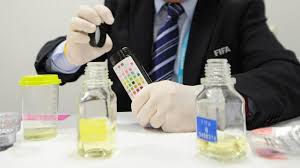By David Owen
December 22 – Football remains anything but a doping blackspot, assuming official statistics offer a reliable guide.
The 2019 testing figures report has just been published by the World Anti-Doping Agency (WADA). This is a 355-page compendium of data relating to the close to 280,000 samples analysed in WADA-accredited laboratories around the world during the year and reported into the agency’s anti-doping administration and management system.
The document showed both that the number of football samples analysed in the year exceeded 40,000 and that this was once again more than the equivalent figure for any other Summer Olympic sport.
These produced just 138 adverse analytical findings – the jargon for positive tests. That amounts to a proportion of just 0.34%, against an average across all sports of 0.97%. Not a single football-related blood sample yielded a positive test in 2019.
Since some of these findings are likely to be covered by therapeutic use exemptions, giving players clearance to use otherwise banned medicines, the proportion of tested footballers who end up ultimately with an anti-doping rule violation against their name may confidently be expected to be even lower.
In total there were 162 instances of banned substances being detected in football-related samples. (An adverse finding may cover more than a single substance).
This broke down into 43 instances of stimulants, 37 cases of glucocorticosteroids (up from 24 in 2018), 30 diuretics/masking agents, 25 anabolic agents, 10 beta-2 agonists and 17 other cases, including eight for cannabinoids.
With respect to the Athlete Biological Passport, a means of picking up possible doping by monitoring certain variables over time, a total of 1,465 football samples were analysed in 2019. UEFA and FIFA between them were responsible for well over half of these, with UK Anti-Doping third on the list with 101.
Contact the writer of this story at moc.l1713288100labto1713288100ofdlr1713288100owedi1713288100sni@n1713288100ewo.d1713288100ivad1713288100

